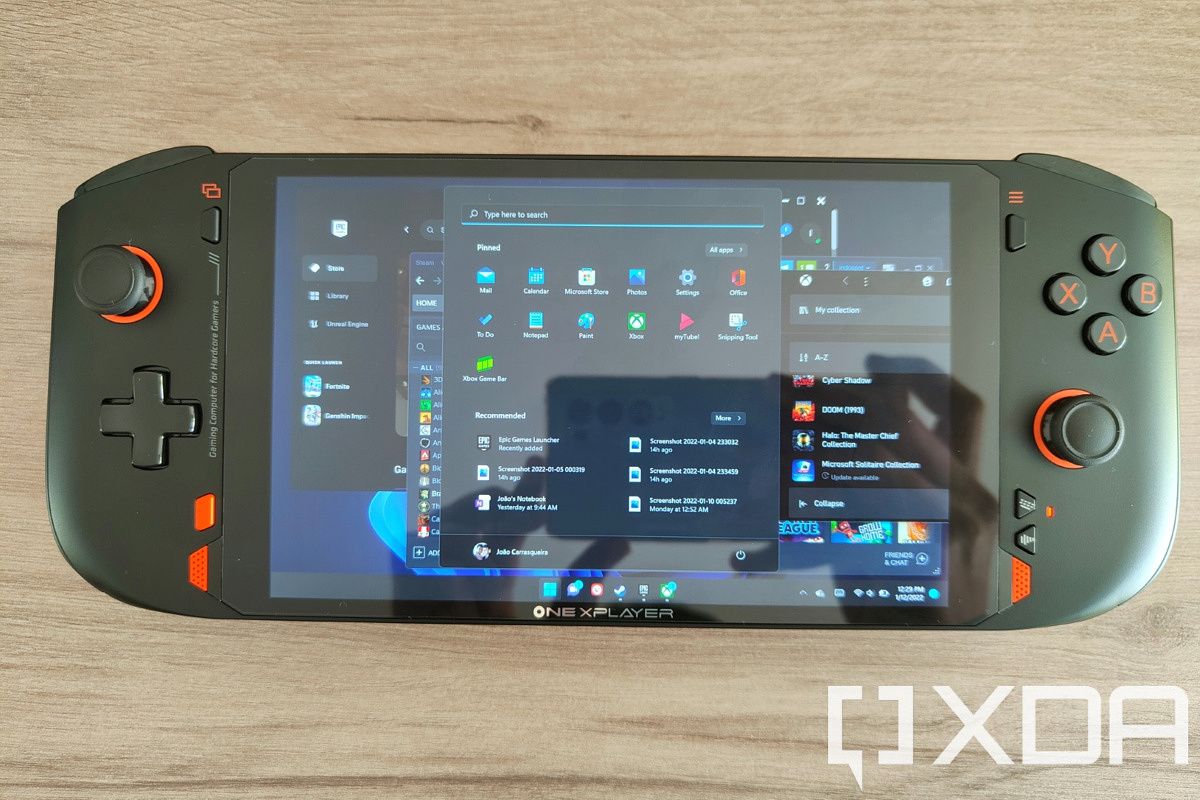Valve's Steam Deck has already shaken up the handheld gaming market without even being in many hands yet. But, its reach could expand beyond just first-party hardware. The Steam Deck software, SteamOS 3.0, could start finding its way to other handheld PCs in the future. Specifically, the One Xplayer series of handheld gaming PCs, with a recent interview between WePC and the company's VP, Jason Zeng, highlighting this possibility.
The latter part of the interview focused on the Steam Deck and its impact on the space, which has until now been dominated by brands like One Xplayer, GPD, and Ayaneo. Most existing handheld gaming PCs share a familiar footprint, and most importantly, Windows for its OS. That's fine, in so much as Windows is the default for gaming. But it's hardly optimized or even particularly friendly to use on such a small machine.
This is where Steam OS could come into play in the future, with Zeng stating that the company has been working on shipping a version of its handhelds in the future with Linux or Valve's own take on it in place of Windows 11. Microsoft will hardly be sweating at the thought, but there are serious benefits to the folks who would be buying these things.
For one, SteamOS is tailored to the handheld experience, with a UI that's not only touch-friendly but easy to navigate with a game controller. And while it hasn't been publicly released to all just yet, you would expect the latest iteration of SteamOS to remain free and open-source. So there's a cost-benefit, too.
But what could really be the killer feature here is Proton. Proton is Valve's compatibility layer which lives on top of the Linux-based OS. It translates Windows APIs, like DirectX, into something Linux understands, such as Vulkan. It can also be used to apply fixes on a game-by-game basis.
You only have to look as far as Elden Ring, a game that Valve managed to improve through additions to Proton without any developer input whatsoever. It's perfectly possible to extract better performance in a game than on a similarly-equipped Windows machine, and a properly targeted OS designed for portable gaming could really start to shake up the category.
Source: WePC

